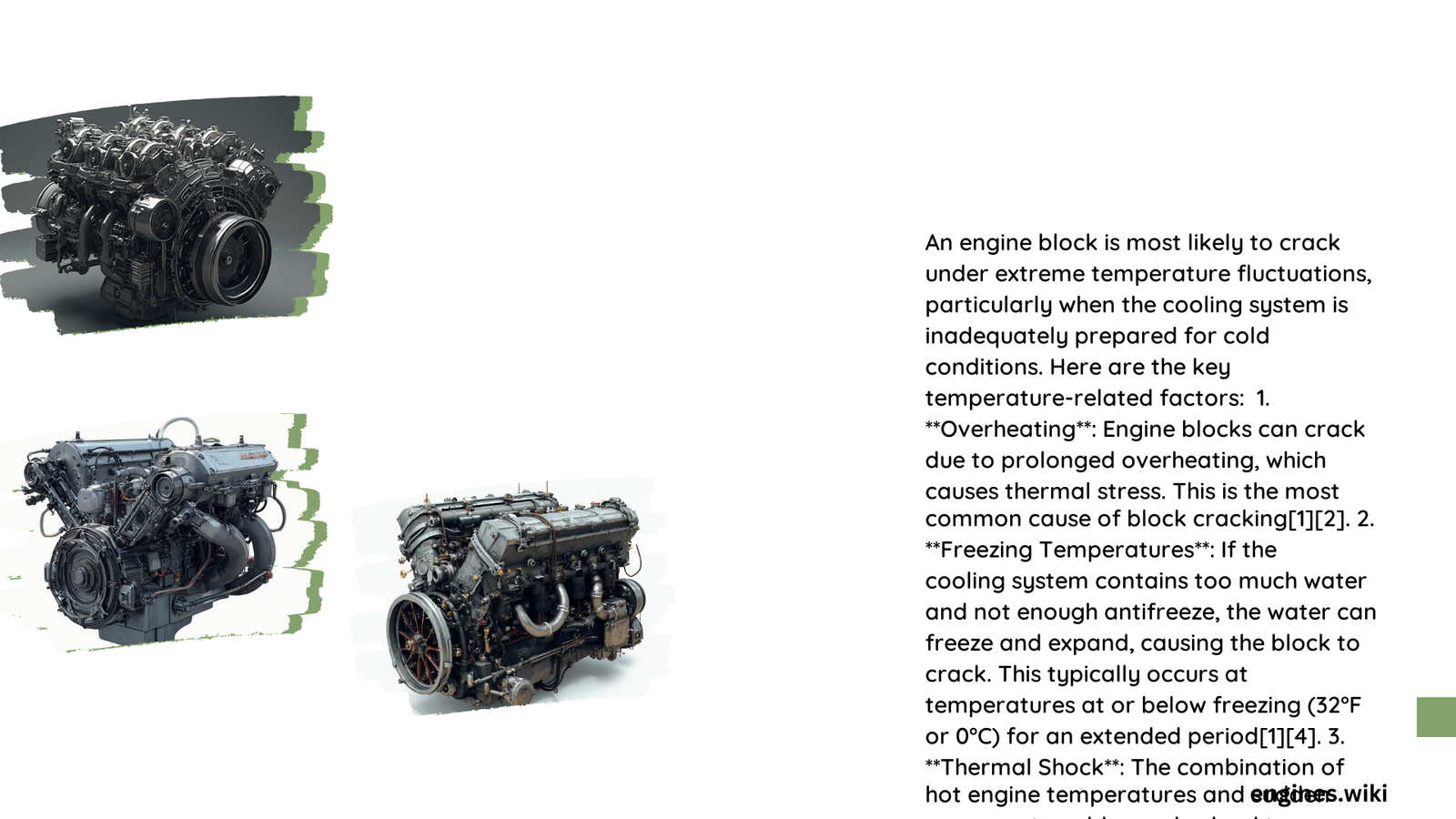Engine block cracking is a critical mechanical failure that occurs when extreme temperatures cause structural damage to an engine’s core component. Understanding the precise temperature thresholds can help vehicle owners prevent catastrophic engine damage through proactive maintenance and monitoring of cooling system performance.
What Causes Engine Block Cracking?
How Cold Temperatures Impact Engine Blocks?
Freezing temperatures pose a significant risk to engine blocks, particularly when coolant levels and antifreeze concentration are inadequate. Key temperature thresholds include:
- Freezing Point Risks:
- 32°F (0°C): Initial freezing risk begins
- Below 20°F (-6°C): High probability of block cracking
- Prolonged exposure increases structural damage potential
| Temperature Range | Risk Level | Potential Damage |
|---|---|---|
| 32°F to 20°F | Moderate | Potential Micro-Fractures |
| Below 20°F | High | Significant Structural Damage |
What Happens During Overheating?
Overheating represents the most common mechanism for engine block cracking. Critical temperature ranges include:
- Normal Operating Temperature: 195°F – 220°F (90°C – 104°C)
- Elevated Risk Zone: 220°F – 250°F (104°C – 121°C)
- Critical Failure Point: Above 250°F (121°C)
Thermal Expansion Mechanics
When an engine experiences sustained high temperatures, several destructive processes occur:
- Rapid metal expansion
- Uneven thermal distribution
- Structural material fatigue
- Potential metallurgical transformation
How Material Composition Influences Cracking?
Different engine block materials exhibit varying temperature tolerances:
- Cast Iron Blocks:
- More heat-resistant
- Higher thermal expansion threshold
-
Slower crack propagation
-
Aluminum Blocks:
- Lower heat tolerance
- Faster thermal expansion
- More susceptible to cracking
What Preventative Measures Can Protect Your Engine?
Comprehensive engine protection involves multiple strategies:
- Maintain proper coolant levels
- Use high-quality antifreeze
- Regular cooling system inspections
- Monitor temperature gauges
- Address overheating immediately
Technical Recommendations for Temperature Management
Recommended Actions:
– Install high-quality temperature sensors
– Use coolant with appropriate freezing point protection
– Perform annual cooling system maintenance
– Replace coolant according to manufacturer specifications
Conclusion

Understanding engine block temperature dynamics requires comprehensive knowledge of thermal mechanics, material science, and automotive engineering principles. Proactive maintenance and immediate response to temperature anomalies can significantly extend engine lifespan.
Expert Insights
Professional mechanics emphasize that prevention is always more cost-effective than engine replacement. Regular diagnostics and attentive monitoring remain the best strategies for preserving engine integrity.
Reference:
– SAE International Thermal Management Research
– ASE Automotive Technical Resources
– Society of Automotive Engineers Thermal Stress Publications
